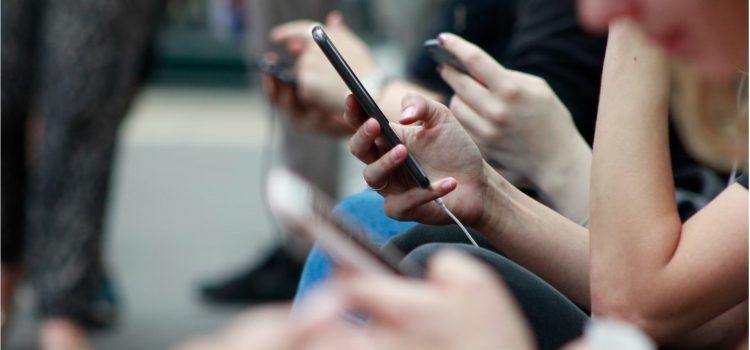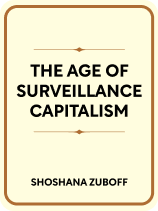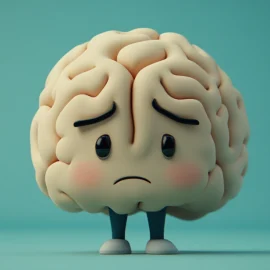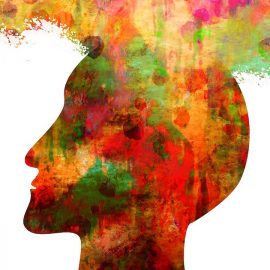

This article is an excerpt from the Shortform book guide to "The Age of Surveillance Capitalism" by Shoshana Zuboff. Shortform has the world's best summaries and analyses of books you should be reading.
Like this article? Sign up for a free trial here.
What is social media’s influence on society? What negative influences do experts say we should be concerned about?
In her bestselling book, The Age of Surveillance Capitalism, author Shoshana Zuboff explains the cause and effect of tech giants intrusively monitoring and using our data for profit (i.e. “surveillance capitalism”). Zuboff further explains social media’s harmful role in this system.
Keep reading to find out how social media is influencing society and our mental health, according to Zuboff.
Social Media in Society: Influencing Mental Health
According to Harvard professor Shoshana Zuboff, social media’s influence on society could be damaging to our mental health. In her bestselling book, The Age of Surveillance Capitalism, she says that Google and other companies—especially social media sites like Facebook—have taken advantage of the fact that people have a natural desire to feel included, which makes them highly likely to keep using their social services. In explaining her concept of “surveillance capitalism,” where big tech companies monitor and exploit your data for profit, Zuboff claims that surveillance capitalism exploits this desire for inclusion.
(Shortform note: How does this exploitation work? Psychologists say that in society, social media platforms create a cycle of isolation and connection, influencing us to stay reliant on their apps. They isolate us by enticing us to connect with acquaintances and strangers rather than see our friends and family face-to-face. Then, when we’re feeling lonely, we’re influenced to look to their apps to feel like we’re connecting with our social networks, restarting the vicious cycle.)
Zuboff further explains that some of the methods companies use to extract our data are damaging to our mental health—particularly social media. In particular, she argues that apps like Facebook and Instagram have influenced society negatively by fostering extreme social comparison. This has caused damaging psychological effects like low self-esteem and self-worth, increased body judgment, and more frequent depressive moods.
Zuboff elaborates that because social media puts our lives on constant display in society, it influences us to exaggerate reality to gain standing among our peers. This causes others to feel inferior in comparison and pushes them to keep up with an unrealistic standard. Ultimately, this traps everyone in a vicious cycle of comparison and posturing that leads to a downward spiral of worsening mental health.
| What’s Behind Our Social Comparison? While Zuboff describes the damaging cycle of social comparison, she doesn’t speak to the cultural roots of our need to compete with our peers in the first place. According to Brené Brown in Daring Greatly, we live in a flaw-focused culture that makes us feel as if we’re never enough. In response to these feelings of inadequacy, we try to compensate by showing how incredible we are. In terms of social media’s influence on today’s society, one of the ways we do this is by creating social posts, where we receive external validation in the form of likes and follows. While psychologists say that some level of validation seeking is normal, social media has made us rely exclusively on validation from others, which has led to the negative psychological effects that Zuboff describes. To overcome this tendency, psychologists recommend identifying when you’re seeking external validation and instead taking actions to self-validate: for example, journaling about your improvements and successes and learning to encourage yourself. |
A Loss of “Self”
Zuboff explains that the hyper-connected world, which is a major consequence of surveillance capitalism, has caused young people—who have not yet matured and developed a strong sense of identity—to lose their sense of “self.” While we all have a desire for connection, she says that adolescents in particular have become so dependent on their connections to others and so incapable of escaping public view that it has threatened their ability to develop an identity that is separate from others’.
As a result of social media creating this loss of self in society, adolescents have become less able to tolerate solitude and are highly influenced by peer pressure and manipulation. They also try to control other people because they see others as an extension of themselves.
| Developing a Sense of Self Apart From Social Media Why does hyperconnectivity threaten adolescents’ ability to develop a sense of self? According to psychologist Erik Erikson’s Stages of Development theory, adolescents need sufficient opportunities for personal exploration of their beliefs, ideals, and values to develop a secure sense of independence and identity. Spending an excessive amount of time connected to social media and others online influences those opportunities and prevents adolescents from developing their sense of self in society. To help adolescents build a stronger sense of identity and avoid the negative effects of hyperconnectivity that Zuboff mentions, parents can encourage their teens to explore their interests, avoid pushing their own agenda on their children, and let their children learn from their own choices. |

———End of Preview———
Like what you just read? Read the rest of the world's best book summary and analysis of Shoshana Zuboff's "The Age of Surveillance Capitalism" at Shortform.
Here's what you'll find in our full The Age of Surveillance Capitalism summary:
- The methods big tech companies are using to watch you
- How surveillance capitalism can thrive despite opposition
- How to prevent it from destroying our freedom and democracy






